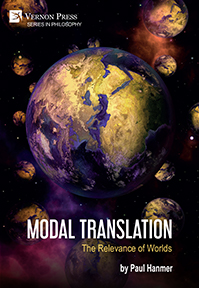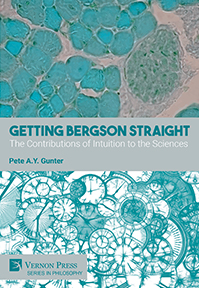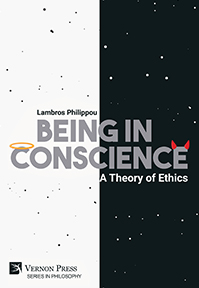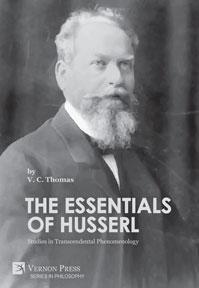Search
Browse
by Publication status
by Subject
Anthropology (26) Art (124) Business and Finance (26) Cognitive Science and Psychology (54) Communication and Journalism (45) Economics (62) Education (66) History (149) Human Geography (22) Interdisciplinary (42) Language and Linguistics (129) Law (16) Music Studies (18) Philosophy (157) Political Science and International Relations (103) Sociology (304) Statistics and Quantitative Methods (20)by Series
Series in Literary Studies (65) Series in Philosophy (59) Series in Education (51) Series in Sociology (42) Series in Politics (32) Series in World History (32) Bridging Languages and Scholarship (31) Series in Language and Linguistics (25) Cognitive Science and Psychology (20) Series in American History (20) Series in Philosophy of Religion (20) Series in Art (19) Critical Perspectives on Social Science (16) Series in Cinema and Culture (16) Curating and Interpreting Culture (15) Series in Critical Media Studies (14) Series on the History of Art (14) Series in Anthropology (13) Series in Business and Finance (13) Economics (13) Series in Music (12) Series in Communication (9) Series in Performing Arts (9) Philosophy of Personalism (8) Series in Law (8) Series in Economic Methodology (7) Series on Climate Change and Society (7) Women's Studies (7) Classics in Economics (6) Series in Economic Development (6) Philosophy of Forgiveness (5) Series in Built Environment (5) Series in Economic History (5) Series in Philosophy of Science (4) Series in Social Equality and Justice (4) Series on the History of Science (4) Serie En Estudios Literarios (3) Serie en Sociología (3) Series in Contemporary History (3) Series in Creative Writing Studies (3) Series in Design (3) The Interdisciplinary Built Environment (3) Serie en Comunicación y Medios (2) Serie en Historia (2) Series in Heritage Studies (2) Series in Innovation Studies (2) Series in Philosophy of Race (2) Serie en Ciencias Políticas (1) Serie en Entorno Construido (1) Serie en Estudios Culturales (1) Serie en Filosofía (1) Serie en Filosofía de la Ciencia (1) Serie en Música (1) Series in Classical Studies (1) Series in Economics of Technological Change (1) Series in Urban Studies (1)by Language
English Spanishby Author
Browsing with filters
Modal Translation: The Relevance of Worlds
Paul Hanmer, Nottingham University
Availability: In stock
174pp. ¦ $54 £44 €49
This book concerns the philosophical analysis of modal sentences. David Lewis’ Modal Translation Scheme "translates" sentences of quantified modal logic into sentences of predicate logic supplemented by counterpart theory. A number of theoretical advantages are thereby secured. One component of the translation scheme makes reference to non-actual but possible worlds i.e. the primitive predicate “at a world(s), w”. The author addresses the problem of advanced modal sentences which threaten this predicate and so the ability of genuine realism to secure the aforementioned theoretical benefits. The problem of advanced modal sentences is a relatively new field of philosophical research. This ground-breaking book will primarily be of interest to researchers in modality, particularly those working in this field.
Getting Bergson Straight: The Contributions of Intuition to the Sciences
Pete A. Y. Gunter, University of North Texas
Availability: In stock
182pp. ¦ $53 £42 €49
This study concerns the ideas of one particular philosopher, Henri Bergson, whose views of time, intuition, and creativity have had a significant impact on art, literature, and the humanities, both in his time and in our own. Although it is generally recognized that Bergson’s ideas have significantly impacted the arts and the humanities, it has not been recognized how they have also had a creative influence on the sciences as well. Nor has it been realized that this was one of his most basic contentions. Bergson’s conception of intuition—his fundamental insight into reality—was not limited to fugitive insights into human existence. By realizing previously unsuspected possibilities for research and discovery, his endeavors were also meant to make possible new advances in the sciences. If it enabled his cousin by marriage, Marcel Proust, to explore human memory in depth, it also inspired psychologists like Daniel Schachter to use Bergson’s ideas to make real contributions to contemporary memory science. If his notion of creative evolution brought many thinkers to a belief in human creative freedom, it brought others (notably Alexis Carrel and Pierre Lecomte de Noüy) to a scientific study of biological time. Among his successful speculations was the theory of the Big Bang cosmology. 'Getting Bergson Straight' shows many points at which Bergson’s ideas anticipated future developments in the sciences. This was seen clearly by the Nobel Prize-winning physicist Luis de Broglie who viewed Bergson’s physics as presaging quantum physics. Thus, the text is well situated for arts, humanities, social science, and natural science classrooms studying creative thinking and/or intellectual history.
Being in Conscience: A Theory of Ethics
December 2022 / ISBN: 978-1-64889-533-3Availability: In stock
218pp. ¦ $74 £58 €69
This book aims to suggest a worldview departing from an articulation of a theory of conscience. It analyses the constitutive parts of conscience, a concept that has not been thoroughly examined and analysed in the discussions on ethics. Having the mechanisms of production of conscience as a point of reference, the book proceeds to discuss the concepts of subjective and collective evil. The concept of being in enhanced conscience aims to position the subjective conscience in human historicity. Based on the analysis of the roots of conscience, the subject is placed in the public sphere from the point of view of its corporeal harmony and disharmony as the conditions for its binding with the institutions and the spirit of a worldsphere. The book then expands its scope by addressing the question of what makes a worldsphere functional and dysfunctional. This analysis is useful for scholars who are interested in the deep structural conditions that produce and sustain a liberal democratic state. Through the analysis of inner-worldly and inter-worldly temporality, the mode of the creative rhythm is depicted by underlining the creative divergence that occurs not only within distinct worlds but also between worldspheres. The mediation of this analysis introduces the concept of planetary functionality whereby what is at stake is the islands of functionality that serve the survival of an interconnected world. The theory of conscience is applied also to the analysis of the state and of the economy. Conscience is also identified with the properties attributed to God, suggesting a new understanding of the meaning of religion and its role in human historicity. Finally, it argues that we should understand the future as the future of conscience that can function as the only motor of historical evolution.
The Essentials of Husserl: Studies in Transcendental Phenomenology
V. C. Thomas, Centre for Phenomenological Sciences, India; Pondicherry University, India
Availability: In stock
224pp. ¦ $61 £45 €52
Known as the founder of the phenomenological movement, this book examines Husserl’s various phases of phenomenology during his realist, transcendental, static, genetic, and post-Crisis (of European Sciences) periods. Consisting of ten carefully researched and thoroughly examined essays, this book describes Husserl’s concepts and ideas through numerous examples and diagrammatic representations, in a bid to elucidate the nuances of phenomenology for its readers. Valuable insights into Husserl’s realist phase are made in the chapter on Meaning, and the chapters on Natural Attitude, Epoché and Phenomenological Reduction, while the chapter on Noesis & Noema symbolizes the transcendental phase. Thomas points out Husserl’s transition from static to genetic phenomenology in the chapter on Lived Body, with the chapters on Lifeworld, and the Notion of the Other, later focusing on this perspective. Husserl’s entire phenomenological space, including his pre-phenomenological period, are covered in the chapter on Lived Time. However, the chapters on Phenomenology: The Study of Self and Beyond, and Consciousness and Intentionality are the fulcrums upon which the edifice of phenomenology turns. The final chapter on Presuppositionlessness in phenomenology expresses Thomas’ personal enquiries into Husserl’s contention that phenomenology is a presuppositionless science. This book will be of particular interest to research scholars and post-graduate students in the areas of Philosophy and Social Sciences, as well as those interested in contemporary Western Philosophy, and the history and development of Ideas.
Vasile Băncilă. An ethnic-spiritualist metaphysics banned by the totalitarian regime
Ion Dur, Technical University of Cluj-Napoca, Romania; Baia Mare Northern University Centre, Romania
Availability: In stock
290pp. ¦ $76 £60 €71
This book is a rediscovery and examination of the thinking of Vasile Băncilă, a philosopher forbidden by the totalitarian regime of Nicolae Ceaușescu. The philosopher Lucian Blaga saw Băncilă as a threat to the spirit of the highest Romanian culture. It is estimated that Băncilă’s work extends to 32 volumes, 17 of which have been published so far. With such a significant opus, Vasile Băncilă is, indisputably, a key figure in contemporary Romanian culture, particularly in the sphere of philosophy. The book has eleven chapters and is divided into two parts. The first part deals with the hermeneutics of the author’s youthful works. His reflections on the purpose of philosophy for life are important, about the role of this discipline in the education of adolescents and students, the relationship between irony and education, his thoughts of one of the greatest Romanian poets, Mihai Eminescu, and the philosophy of Descartes and of Schopenhauer. In the second part, the book looks at Băncilă’s aim of structuring a possible system of philosophy; more precisely, an ethnic-spiritualist metaphysics which, when it was elaborated, contradicted the official ideology of the totalitarian regime. Finally, the book covers the philosopher’s work, analysing step-by-step the relation between the part and the whole (pars pro toto), as well as between existence and metaphysics, and the philosopher’s conclusions about Romanian existence.






